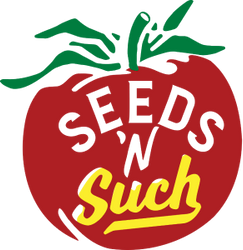North Georgia Candy Roaster Winter Squash / Pumpkin Seeds
Whether called a winter squash or a pumpkin, these banana-shaped fruits are pink with a blue tip and weigh a nice amount. Smooth, deliciously sweet, orange flesh can’t be beat for making pies, baking or roasting. Fantastic heirloom that can be stored for 5 months. Highly decorative.
- Days to Maturity: 97
- Sow Method: Start Indoors / Direct Sow
- Sow Depth: ½ - 1 Inch
- Spacing: 18 - 36 Inches
- Sun: Full Sun
- Fruit Weight: 8 - 15 Lbs
Catalog Page: 60

